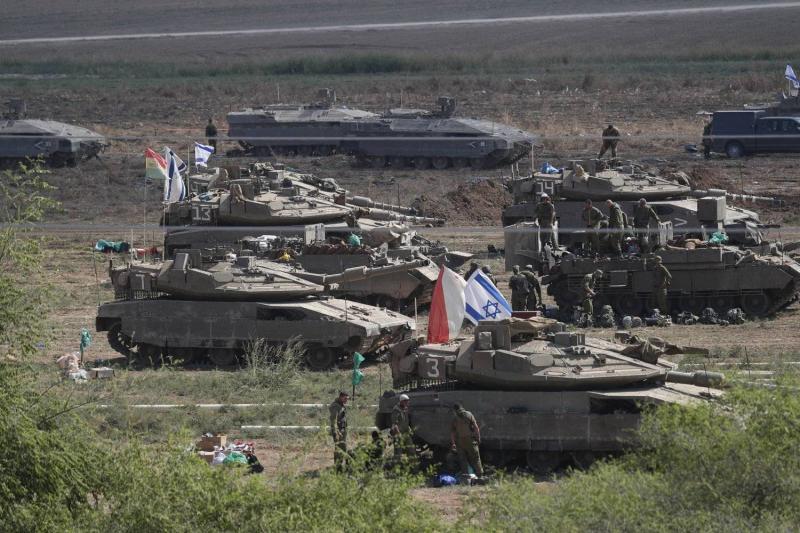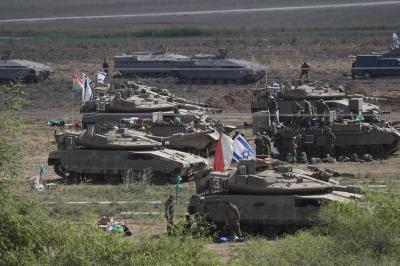The clashes in Gaza have quieted, and both the Israeli and Palestinian sides are exchanging prisoners. However, the question arises: what will happen after the exchange and the agreed-upon ceasefire come to an end? Experts point to three possible scenarios.
The first scenario relies on the ability of Egyptian and Qatari negotiators to extend the ceasefire for a longer period, thereby "cooling down the conflict." The second scenario suggests that military leaders in Israel may not fully accept the ceasefire as an acknowledgment of defeat and could resort to breaches and sporadic clashes, followed by renewed negotiations for new ceasefires aimed at preventing Palestinian factions from achieving a "moral victory" or raising the stakes in negotiations, especially as deals concerning Israeli soldiers approach. The third scenario indicates a resurgence of fighting, potentially with an "intensity stronger" than before the ceasefire, particularly after pressure related to the existence of captives and detainees in Gaza is lifted.
Egyptian and Qatari mediation, supported by the United States, successfully extended the initial humanitarian ceasefire in Gaza by an additional two days in exchange for Hamas releasing 10 civilians and foreigners held in Gaza, while Israel would release 30 Palestinian prisoners. The humanitarian ceasefire began after 48 days of unprecedented Israeli bombardment of Gaza last Friday; it was expected to last for four days and included the release of 50 detainees in Gaza in exchange for Israel freeing 150 Palestinian prisoners, in addition to increasing supplies of humanitarian aid, fuel, and cooking gas to the region.
Dr. Ayman Al-Ruqab, a political science professor and Palestinian leader in Fatah, predicted that "the ceasefire and prisoner exchanges between Israel and Palestinian resistance factions will continue based on the available number of civilians." He expressed his belief that "the factions in Gaza have a larger number than Israel expects." Al-Ruqab explained to Asharq Al-Awsat that "if Egyptian and Qatari negotiators manage to extend the ceasefire for additional days, they will push for a long-term ceasefire agreement," but he anticipated "the Israeli occupation army's leaders will not easily succumb to this, and they may resort to breaches that impede the ceasefire, given the statements from Israeli Defense Minister Yoav Galant regarding his desire to resume attacks on Gaza at a more intense pace after the ceasefire ends."
Al-Ruqab noted that "phases of negotiation regarding exchanges with Israel could give negotiators some time, and after concluding negotiations regarding Israeli and foreign civilians, the focus could shift to delivering the bodies of prisoners killed in Israeli attacks on Gaza, before moving on to the more decisive and challenging phase of negotiating military personnel. This group will not be uniform but could be divided into soldiers and officers." He added that "negotiating the military personnel will involve different standards, especially for officers, many of whom hold leadership positions in the occupation army, and thus the cost of their exchange could include releasing prisoners from occupation prisons, alongside a political cost of halting the war. However, he also warned about the danger of Israeli military leaders exploiting U.S. green light to resume the war and attempt to use more violent tactics after all prisoners have been exchanged."




